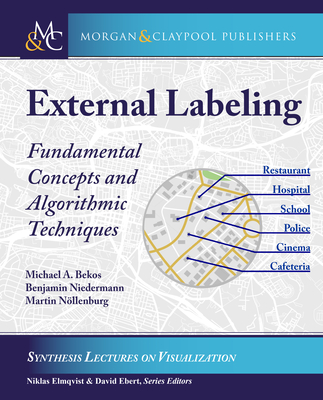15 Math Concepts Every Data Scientist Should Know: Understand and learn how to apply the math behind data science algorithms
暫譯: 每位資料科學家必須了解的15個數學概念:理解並學習如何應用資料科學演算法背後的數學原理
Hoyle, David
- 出版商: Packt Publishing
- 出版日期: 2024-08-16
- 售價: $1,690
- 貴賓價: 9.5 折 $1,605
- 語言: 英文
- 頁數: 510
- 裝訂: Quality Paper - also called trade paper
- ISBN: 1837634181
- ISBN-13: 9781837634187
-
相關分類:
Data-mining
海外代購書籍(需單獨結帳)
商品描述
Create more effective and powerful data science solutions by learning when, where, and how to apply key math principles that drive most data science algorithms
Key Features:
- Understand key data science algorithms with Python-based examples
- Increase the impact of your data science solutions by learning how to apply existing algorithms
- Take your data science solutions to the next level by learning how to create new algorithms
- Purchase of the print or Kindle book includes a free PDF eBook
Book Description:
Data science combines the power of data with the rigor of scientific methodology, with mathematics providing the tools and frameworks for analysis, algorithm development, and deriving insights. As machine learning algorithms become increasingly complex, a solid grounding in math is crucial for data scientists. David Hoyle, with over 30 years of experience in statistical and mathematical modeling, brings unparalleled industrial expertise to this book, drawing from his work in building predictive models for the world's largest retailers.
Encompassing 15 crucial concepts, this book covers a spectrum of mathematical techniques to help you understand a vast range of data science algorithms and applications. Starting with essential foundational concepts, such as random variables and probability distributions, you'll learn why data varies, and explore matrices and linear algebra to transform that data. Building upon this foundation, the book spans general intermediate concepts, such as model complexity and network analysis, as well as advanced concepts such as kernel-based learning and information theory. Each concept is illustrated with Python code snippets demonstrating their practical application to solve problems.
By the end of the book, you'll have the confidence to apply key mathematical concepts to your data science challenges.
What You Will Learn:
- Master foundational concepts that underpin all data science applications
- Use advanced techniques to elevate your data science proficiency
- Apply data science concepts to solve real-world data science challenges
- Implement the NumPy, SciPy, and scikit-learn concepts in Python
- Build predictive machine learning models with mathematical concepts
- Gain expertise in Bayesian non-parametric methods for advanced probabilistic modeling
- Acquire mathematical skills tailored for time-series and network data types
Who this book is for:
This book is for data scientists, machine learning engineers, and data analysts who already use data science tools and libraries but want to learn more about the underlying math. Whether you're looking to build upon the math you already know, or need insights into when and how to adopt tools and libraries to your data science problem, this book is for you. Organized into essential, general, and selected concepts, this book is for both practitioners just starting out on their data science journey and experienced data scientists.
Table of Contents
- Recap of Mathematical Notation and Terminology
- Random Variables and Probability Distributions
- Matrices and Linear Algebra
- Loss Functions and Optimization
- Probabilistic Modeling
- Time Series and Forecasting
- Hypothesis Testing
- Model Complexity
- Function Decomposition
- Network Analysis
- Dynamical Systems
- Kernel Methods
- Information Theory
- Non-Parametric Bayesian Methods
- Random Matrices
商品描述(中文翻譯)
透過學習何時、何地以及如何應用驅動大多數資料科學演算法的關鍵數學原則,來創建更有效且強大的資料科學解決方案
主要特色:
- 透過基於 Python 的範例了解關鍵的資料科學演算法
- 透過學習如何應用現有演算法來提高資料科學解決方案的影響力
- 透過學習如何創建新演算法將您的資料科學解決方案提升到更高的層次
- 購買印刷版或 Kindle 書籍可獲得免費 PDF 電子書
書籍描述:
資料科學結合了數據的力量與科學方法論的嚴謹性,數學提供了分析、演算法開發和推導見解的工具和框架。隨著機器學習演算法變得越來越複雜,資料科學家必須具備扎實的數學基礎。David Hoyle 擁有超過 30 年的統計和數學建模經驗,為本書帶來無與倫比的行業專業知識,並借鑒他在為全球最大零售商建立預測模型方面的工作。
本書涵蓋 15 個關鍵概念,介紹一系列數學技術,幫助您理解廣泛的資料科學演算法和應用。從隨機變數和機率分佈等基本概念開始,您將學習為何數據會變化,並探索矩陣和線性代數以轉換這些數據。在此基礎上,本書涵蓋一般中級概念,如模型複雜性和網絡分析,以及高級概念如基於核的學習和信息理論。每個概念都用 Python 代碼片段進行說明,展示其在解決問題中的實際應用。
在本書結束時,您將有信心將關鍵數學概念應用於您的資料科學挑戰。
您將學到的內容:
- 掌握所有資料科學應用的基礎概念
- 使用高級技術提升您的資料科學能力
- 應用資料科學概念解決現實世界的資料科學挑戰
- 在 Python 中實現 NumPy、SciPy 和 scikit-learn 概念
- 使用數學概念構建預測機器學習模型
- 獲得貝葉斯非參數方法的專業知識,以進行高級概率建模
- 獲得針對時間序列和網絡數據類型的數學技能
本書適合誰:
本書適合資料科學家、機器學習工程師和資料分析師,他們已經使用資料科學工具和庫,但希望深入了解其背後的數學。無論您是希望在已有的數學基礎上進一步學習,還是需要了解何時及如何將工具和庫應用於您的資料科學問題,本書都適合您。書中內容分為基本、一般和選定概念,適合剛開始資料科學之旅的實踐者和有經驗的資料科學家。
目錄
- 數學符號和術語回顧
- 隨機變數和機率分佈
- 矩陣和線性代數
- 損失函數和優化
- 機率建模
- 時間序列和預測
- 假設檢驗
- 模型複雜性
- 函數分解
- 網絡分析
- 動態系統
- 核方法
- 信息理論
- 非參數貝葉斯方法
- 隨機矩陣






























